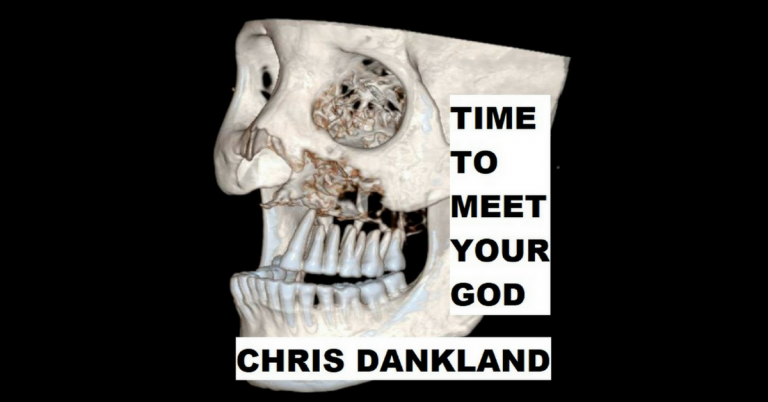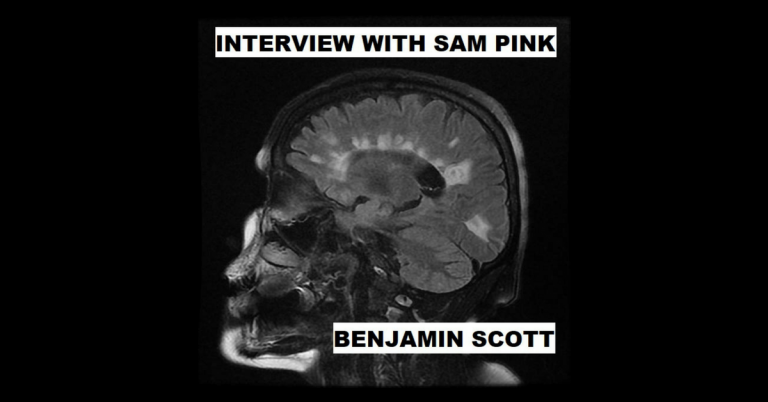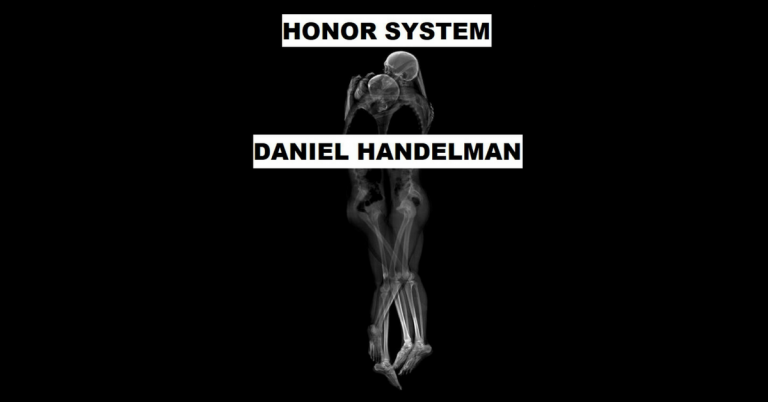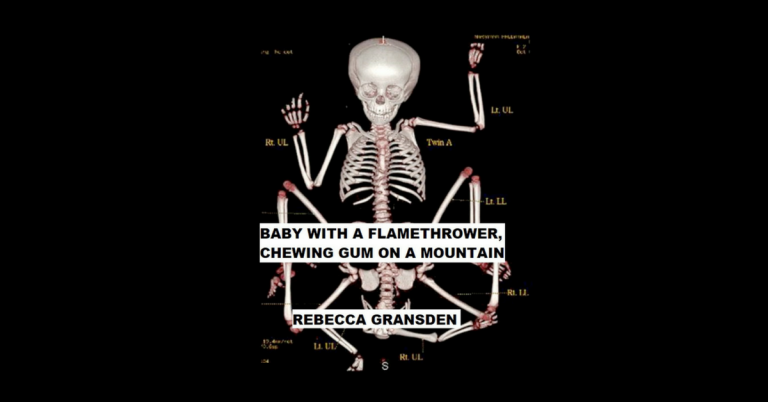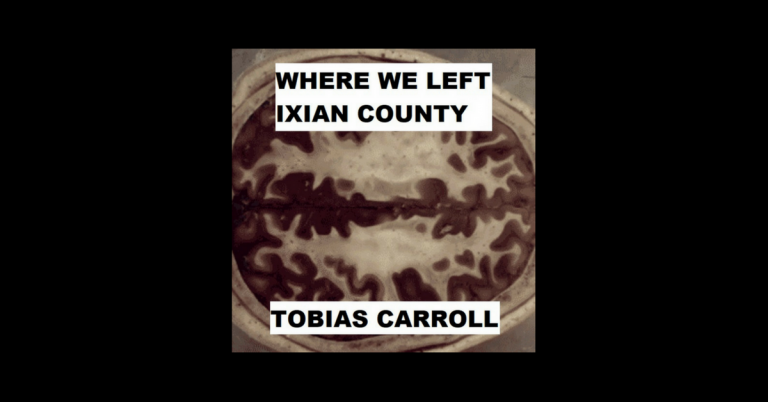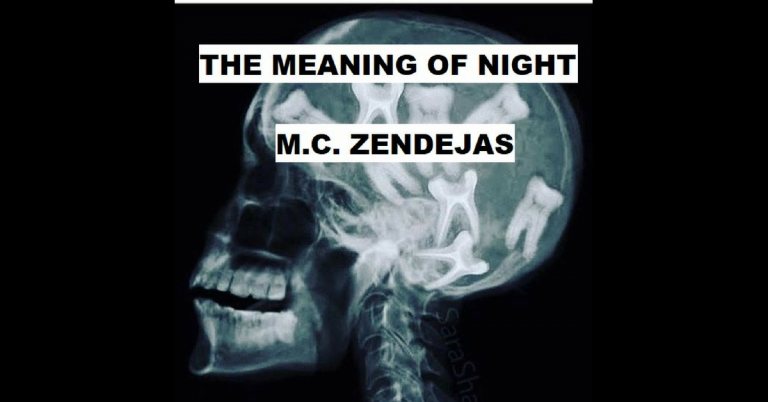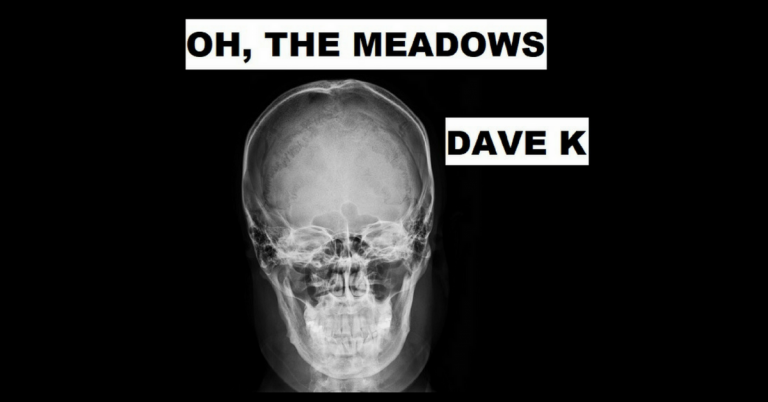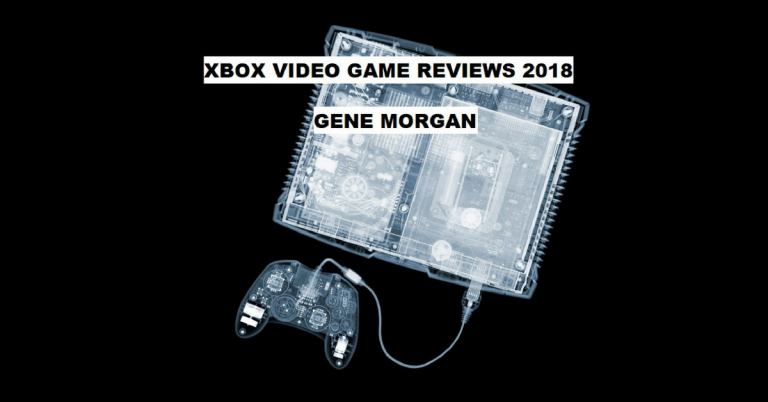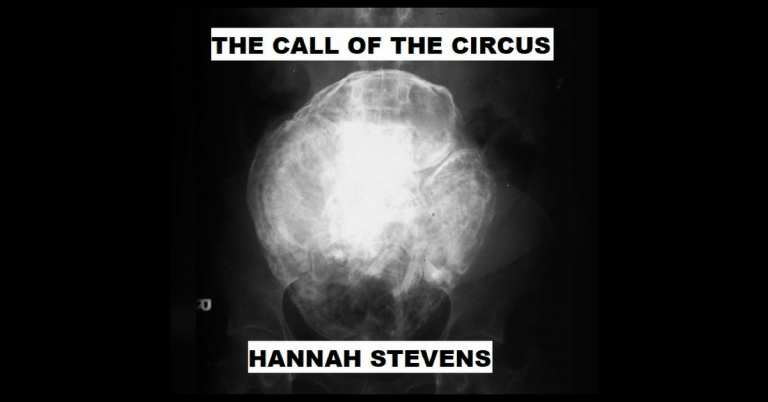
CALL OF THE CIRCUS by Hannah Stevens
She didn’t know they were coming but she knew when they’d arrived. It was April and the weather was too good for the time of year.
She heard the noise on the breeze: the faint, twisted sound of faraway music from a tent. She was outside and sat on steps framed by wisteria. Purple flowers hung from the thin tangled limbs of the plant and the heavy, tapered bunches reminded her of grape vines. Her feet were pale and bare and the tops of them burned.
Every few minutes there was a lyric caught between the music in the air. Adel put on her shoes and began to walk towards the music. As a child she’d felt compelled to follow ice-cream vans and her mother had lost her more than once. It had never been the sweet things that drew her because they’d always hurt her teeth: it was the colour and noise that she’d had to chase.
The circus tent stood in the fields across the main road. It was tall and she could see the red top and stripes high above street signs and hedges. The sky above it was dark blue but faded to paler shades as it got closer to the earth. It hadn’t rained for weeks and the dust in the air turned orange in the falling sun.
Later, when Noah was home, she told him they would eat in the garden. It was Sunday and he’d been working overtime again. Outside, she’d already lit the barbeque and the coals were silver and hot. Coloured bowls of salad and rice were laid on the table and she’d chopped radishes in the shape of jagged flower heads.
‘We’re eating outside tonight,’ she said, ‘you just need to bring the wine and glasses.’ She handed him a cold, cloudy bottle from the fridge and watched as the condensation ran down its neck.
‘Oh,’ he said, ‘but what about the bugs: I’ll be bitten all over.’ He looked at her but she was already in the arch of the door.
‘There’s something in the cupboard for that,’ she said without turning her head. ‘I’ll see you outside.’
It was past ten now and though the garden was dark the sky still had patches of blue. It was as if day was waiting for something and wouldn’t leave.
‘Look at that,’ Adel said and pointed upwards.
‘Oh yes,’ he said, ‘it reminds me of a toy I had as a child: it was like a jigsaw puzzle except it was made of wooden blocks. You flipped them over one way and it was a night scene. You flipped them the other and it was day. Sometimes I only turned half so it could be both at the same time. I always wanted it all, even then.’ He laughed.
‘That’s sweet,’ she said even though she didn’t mean it.
‘Maybe we’ll get something similar when we have children,’ he said and looked at her in that way he always did when he wanted something. She picked up the folded blanket beside her and pulled it across her legs.
She remembered the time she’d thought she was pregnant. It wasn’t that long ago and she remembered the sick feeling and how she couldn’t bear to do a test. Instead she’d looked up abortion clinics and how they did it. When Noah asked what made her restless at night she’d said it was work. Or maybe she was eating too late. It was probably just one of those things, you know how it is. In the end there’d been nothing to worry about after all. Either she’d miscounted the dates or nature had solved the problem for her.
‘Shall we go inside?’ he said. ‘I think I’ve been bitten. Plus we’ve both got early starts tomorrow and you look tired.’
She thought of the drive to work in the morning and reading the same street names as she passed them. She thought of the traffic crawling at its painful pace during rush hour and parents at school gates with purple circles beneath eyes they could barely keep open.
‘You go,’ she said, ‘I’m staying out a little bit longer.’
‘What about the cleaning up?’ he asked.
‘It can wait,’ she said. ‘Let’s be reckless.’ She picked up her glass then and swallowed the last of the wine.
‘Okay, just this once,’ he laughed and then he kissed her nose which felt cold now.
She waited until she heard the click of the door as it closed. Then she stood up and crossed the garden. The grass was cool and she could feel the material of her canvas shoes dampen as she walked. She stopped at the top of the driveway. A few seconds passed. There was still the sound of music but it was fainter now: maybe the circus had finished for the night. She hesitated for a moment and then stepped onto the pavement.
There were caravans lined up in neat rows behind the circus tent. In some she could see lights glowing from behind drawn curtains while others were in darkness. She wondered who was inside and if any of them were sleeping yet. There was noise coming from the circus tent and the music was louder there. She pushed aside the material that had been untied from its guy ropes and now hung across the entrance.
String lights were suspended from the ceiling and curled around supporting poles and ropes. They were shaped like lanterns and glowed red, yellow, green and blue. There were clowns in the centre of the tent and she watched as they stacked chairs and put props into boxes. Adel noticed a pile of empty beer bottles.
‘Are you okay?’ a clown in braces with bare feet asked.
‘Yes’, she said, ‘I was just having a look.’
‘Well the show’s over now, you missed it,’ said the clown, ‘but you can join us for a drink if you want.’ There was a gesture towards seats close to where Adel stood. She took a few steps and sat down. The clown offered her a bottle of beer and she leant forward to take it.
It was hot in the tent: the heat was damp and humid and Adel tasted salt on her lips. The clowns were still wearing their makeup and she wondered if she would recognise any of them once they’d taken it off. The clown next to Adel had smudged some of the white paint across her face and flashes of peach were slashed across her forehead.
Someone turned up the music and then there was dancing.
‘Let’s dance,’ said the clown with the smudge. She held out her hand as if inviting Adel to a formal waltz. Adel laughed and stood up. The clown’s hand was cool in spite of the heat and she was surprised.
‘When are you leaving?’ Adel said.
‘Tomorrow,’ said the clown and raised an eyebrow. ‘In the morning when most people will still be asleep.’ Adel could feel her phone as it buzzed in her pocket. It was Noah but she didn’t answer. The clown’s shirt was undone now and there was a vest she could see through beneath. A giant blue bow was still tied across her throat and she touched it. It was soft between her fingertips.
‘Even after all these beers?’ Adel asked and lifted her empty bottle into the air.
‘Of course,’ said the clown and she pulled Adel closer. ‘Come with us.’

